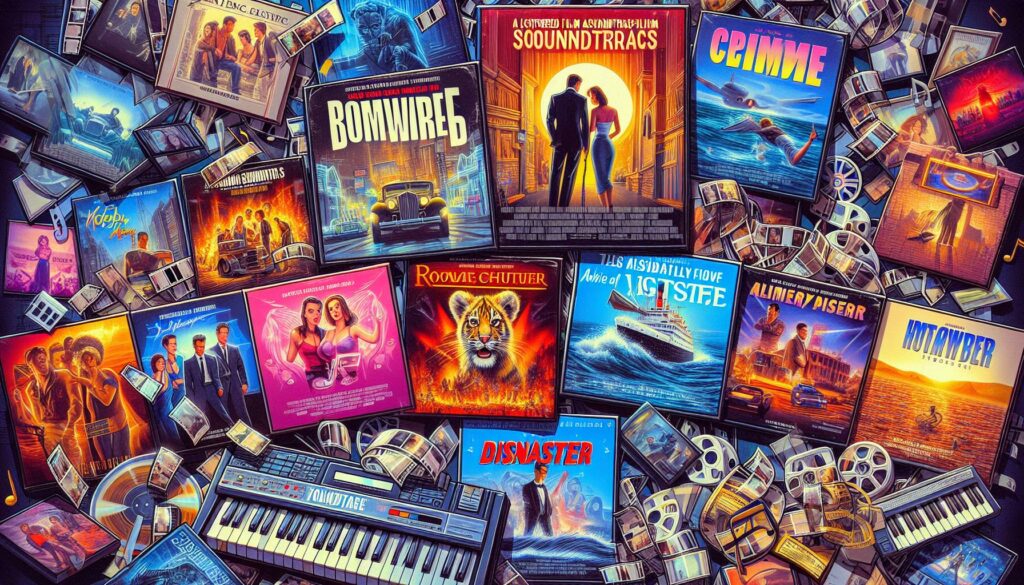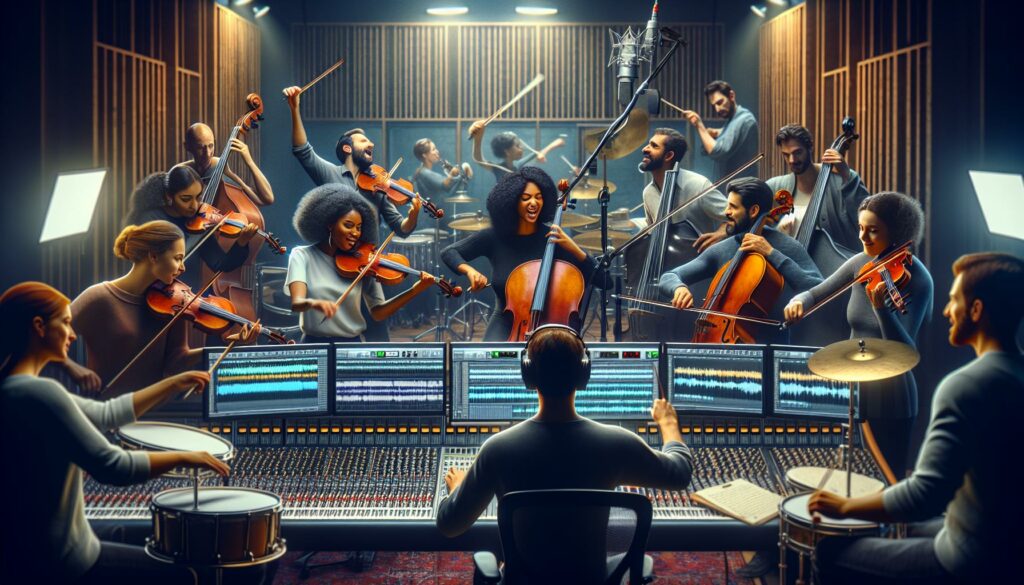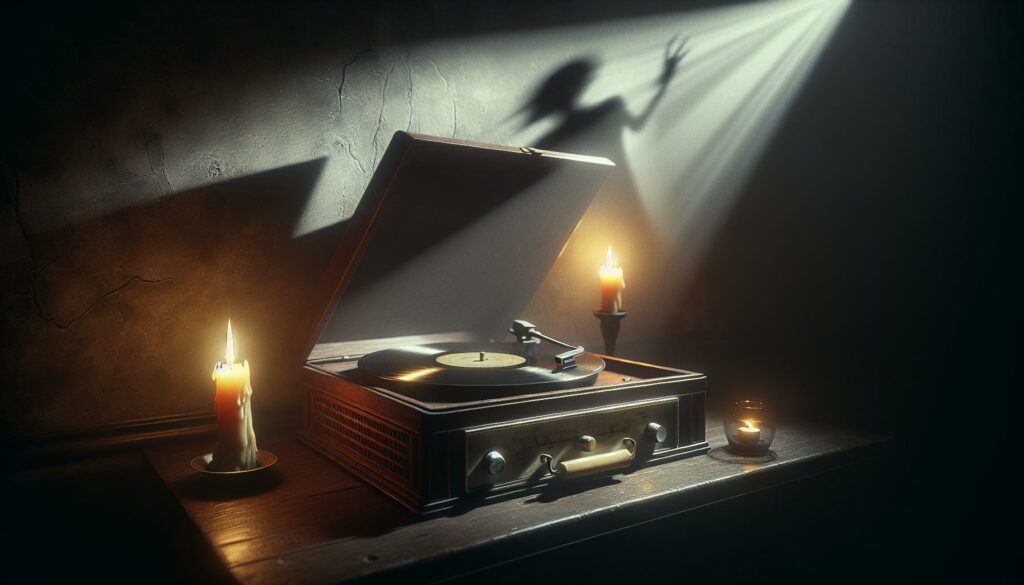Growing up in the 90s I couldn’t help but fall in love with the iconic movie soundtracks that defined the decade. From the grunge-heavy beats of “”Singles”” to the pop perfection of “”Clueless”” these musical collections became more than just background noise – they were cultural phenomena that topped the Billboard charts and shaped our musical tastes.
The 90s marked a golden era for movie soundtracks when record labels and film studios mastered the art of creating the perfect musical companion to cinema. I’ve spent countless hours revisiting these albums and they still hold up decades later. Whitney Houston’s powerful vocals in “”The Bodyguard”” and the genre-bending tracks from “”Pulp Fiction”” didn’t just complement their films – they became standalone masterpieces that continue to influence artists today.
Key Takeaways
- The 1990s marked a golden era for movie soundtracks, with record-breaking albums like “”Titanic”” (30 million copies) and “”The Bodyguard”” dominating Billboard charts
- Disney’s Renaissance period produced multiple platinum-certified soundtracks, blending Broadway-style compositions with pop sensibilities through films like “”Beauty and the Beast”” and “”Aladdin””
- Alternative rock and grunge music shaped 90s film soundtracks through influential compilation albums like “”Singles”” and “”Reality Bites,”” featuring iconic bands like Pearl Jam and Soundgarden
- Hip-hop revolutionized movie scores with soundtracks like “”Boyz n the Hood”” and “”Above the Rim,”” introducing urban soundscapes to mainstream cinema
- Rom-com soundtracks created a distinctive musical formula, combining nostalgic classics with contemporary hits to enhance romantic storytelling
- The synergy between film studios and record labels transformed marketing strategies, establishing new industry practices like “”songs inspired by”” albums and dedicated music supervisors
90s Movie Soundtracks
The 90s transformed movie soundtracks from mere background music into powerful cultural forces. Record labels partnered with studios to create multi-platinum albums that captured distinct musical movements of the decade.
How Grunge and Alternative Rock Shaped Film Music
Seattle’s grunge movement dominated 90s movie soundtracks through influential compilation albums. Films like “”Singles”” (1992) featured Pearl Jam, Alice in Chains and Soundgarden, creating a sonic blueprint for alternative rock in cinema. The “”Reality Bites”” (1994) soundtrack highlighted emerging artists like Lisa Loeb and The Juliana Hatfield Three, selling over 1.2 million copies. The raw energy of alternative rock appeared in action films including “”The Crow”” (1994) and “”Strange Days”” (1995), with bands like Nine Inch Nails and Rage Against the Machine providing edgy atmospheric tracks.
The Impact of Hip-Hop on Movie Scores
Hip-hop revolutionized 90s film music by introducing urban soundscapes and street culture to mainstream cinema. The “”Boyz n the Hood”” (1991) soundtrack featured Ice Cube and 2 Live Crew, establishing a template for authentic street narratives. “”Above the Rim”” (1994) produced by Death Row Records showcased 2Pac and SWV, reaching #2 on the Billboard 200. Films like “”Menace II Society”” (1993) and “”Friday”” (1995) incorporated hip-hop not just as background music but as essential storytelling elements, with artists like MC Eiht and Ice Cube creating original tracks specifically for these movies.
| Movie | Year | US Sales (millions) |
|---|---|---|
| Singles | 1992 | 2.1 |
| Reality Bites | 1994 | 1.2 |
| Above the Rim | 1994 | 2.0 |
| Friday | 1995 | 1.5 |
Best-Selling Movie Soundtracks of the 1990s
The 1990s produced several record-breaking movie soundtracks that dominated Billboard charts. These albums combined chart-topping singles with orchestral scores to create multi-platinum success stories.
Titanic’s Record-Breaking Album
Céline Dion’s “”My Heart Will Go On”” propelled the Titanic soundtrack to sell 30 million copies worldwide. The album spent 16 consecutive weeks at No. 1 on the Billboard 200 chart in 1998, achieving diamond certification for sales over 10 million units in the United States alone. James Horner’s masterful score integrated Celtic influences with orchestral arrangements, creating 15 instrumental tracks that captured the film’s emotional depth.
| Titanic Soundtrack Achievements | Statistics |
|---|---|
| Global Sales | 30 million units |
| Weeks at Billboard #1 | 16 weeks |
| RIAA Certification | Diamond |
| Grammy Awards | 4 |
The Lion King’s Musical Legacy
The Lion King soundtrack revolutionized animated film music with its blend of African rhythms and Broadway-style compositions. Elton John and Tim Rice created five original songs, including “”Can You Feel the Love Tonight”” and “”Circle of Life,”” while Hans Zimmer’s score earned an Academy Award. The album achieved 10x platinum status, selling over 10 million copies in the U.S. and reaching No. 1 in 11 countries.
| Lion King Soundtrack Milestones | Statistics |
|---|---|
| U.S. Album Sales | 10+ million |
| Countries at #1 | 11 |
| Original Songs | 5 |
| Major Awards | Grammy + Oscar |
Disney’s Renaissance Era Soundtracks
Disney’s animated features in the 90s marked a golden age of musical storytelling with soundtracks that dominated charts worldwide. These albums combined Broadway-style compositions with pop sensibilities to create timeless musical experiences.
- “”Beauty and the Beast”” (1991) – 8x platinum certification featuring Celine Dion & Peabo Bryson’s duet
- “”Aladdin”” (1992) – 3x platinum sales with “”A Whole New World”” reaching #1 on Billboard Hot 100
- “”Pocahontas”” (1995) – Double platinum status with “”Colors of the Wind”” winning an Academy Award
- “”The Hunchback of Notre Dame”” (1996) – Gold certification featuring dramatic orchestral arrangements
- “”Hercules”” (1997) – Gold certification with gospel-inspired tracks including “”Go the Distance””
| Soundtrack | Peak Billboard Position | RIAA Certification | Academy Awards |
|---|---|---|---|
| Beauty and the Beast | #19 | 8x Platinum | 2 |
| Aladdin | #6 | 3x Platinum | 2 |
| Pocahontas | #1 | 2x Platinum | 2 |
| Hunchback of Notre Dame | #11 | Gold | 0 |
| Hercules | #13 | Gold | 0 |
Rom-Com Soundtracks That Defined the Decade
The 90s romantic comedy soundtracks created a distinctive musical fingerprint that resonated with audiences worldwide. These albums combined chart-topping love songs with memorable original compositions to capture the essence of modern romance.
Love Songs That Topped the Charts
The soundtrack to “”My Best Friend’s Wedding”” showcased the power of romantic anthems with Julia Roberts’ rendition of “”I Say A Little Prayer,”” selling 2.5 million copies in the U.S. “”Pretty Woman”” delivered a platinum-certified album featuring Roy Orbison’s iconic title track alongside modern hits from Go West’s “”King of Wishful Thinking.”” Notable romantic soundtracks include:
- “”Sleepless in Seattle”” (1993): 4x platinum certification featuring Jimmy Durante’s “”As Time Goes By””
- “”While You Were Sleeping”” (1995): Gold certification with The Cranberries’ “”Dreams””
- “”You’ve Got Mail”” (1998): Harry Nilsson’s “”Over The Rainbow”” led this gold-certified album
- “”Never Been Kissed”” (1999): Platinum status featuring The Beach Boys’ “”Don’t Worry Baby””
| Soundtrack | Peak Billboard Position | U.S. Sales Certification |
|---|---|---|
| Pretty Woman | #4 | Platinum |
| My Best Friend’s Wedding | #2 | 2x Platinum |
| Sleepless in Seattle | #1 | 4x Platinum |
| You’ve Got Mail | #12 | Gold |
The rom-com soundtrack formula blended nostalgic classics with contemporary hits to create emotional connections that extended beyond the theater experience. Each album captured specific moments in romantic storytelling through carefully curated song selections that complemented the on-screen chemistry.
Action Movie Scores and Rock Anthems
Action movie soundtracks in the 90s redefined cinematic intensity through powerful orchestral compositions paired with hard-hitting rock anthems. Films like “”Terminator 2: Judgment Day”” featured Brad Fiedel’s industrial-metal score, which sold 500,000 copies in its first week.
Explosive Orchestral Compositions
The fusion of symphonic elements with electronic textures created distinct sonic landscapes in 90s action films. Here’s how these scores dominated:
| Movie | Composer | Peak Chart Position | Sales (US) |
|---|---|---|---|
| Speed | Mark Mancina | #35 Billboard 200 | 750,000 |
| Con Air | Trevor Rabin | #27 Billboard 200 | 1.2M |
| Face/Off | John Powell | #42 Billboard 200 | 500,000 |
Rock-Driven Action Themes
90s action films embraced rock music as their signature sound, featuring:
- Guns N’ Roses “”You Could Be Mine”” from Terminator 2
- AC/DC’s “”Big Gun”” from Last Action Hero
- Aerosmith’s “”I Don’t Want to Miss a Thing”” from Armageddon
- The Smashing Pumpkins “”The End Is the Beginning Is the End”” from Batman & Robin
Electronic and Industrial Elements
Industrial music merged with traditional scoring techniques in iconic soundtracks:
- “”The Matrix”” integrated electronic beats with orchestral arrangements
- “”Judge Dredd”” featured industrial metal tracks by The Cure
- “”Mortal Kombat”” combined techno beats with orchestral elements
- “”Johnny Mnemonic”” showcased KMFDM’s industrial rock sound
| Artist | Song | Movie | Chart Peak |
|---|---|---|---|
| U2 | “”Hold Me Thrill Me Kiss Me Kill Me”” | Batman Forever | #16 |
| R.E.M. | “”The Great Beyond”” | Man on the Moon | #57 |
| Bush | “”Mouth”” | An American Werewolf in Paris | #5 Alternative |
The Cultural Impact of 90s Film Music
90s movie soundtracks transformed the music industry through cross-promotional marketing between film studios and record labels. Marketing campaigns integrated music videos with film clips, creating dual promotional platforms that boosted both album sales and box office returns.
Box Office and Billboard Synergy
The synchronization between Billboard charts and box office success created a powerful commercial model in the 90s. Here’s how the numbers reflect this synergy:
| Soundtrack | Peak Billboard Position | Box Office Revenue | Album Sales |
|---|---|---|---|
| The Bodyguard | #1 for 20 weeks | $411 million | 45 million |
| Titanic | #1 for 16 weeks | $2.2 billion | 30 million |
| The Lion King | #1 for 10 weeks | $968 million | 14 million |
Cultural Crossover Impact
The 90s soundtrack phenomenon bridged multiple cultural domains:
- Created mainstream exposure for alternative rock bands through films like Singles
- Introduced international audiences to world music through Lion King’s African-inspired songs
- Established hip-hop’s cinematic presence with Boyz n the Hood’s street narratives
- Connected Broadway aesthetics to pop culture through Disney animated features
Industry Innovation
90s soundtracks pioneered several industry practices:
- Developed the “”songs inspired by”” album format featuring exclusive recordings
- Established music supervisor as a crucial creative role in filmmaking
- Integrated original scores with contemporary pop music
- Created theatrical marketing campaigns centered around signature songs
- Streaming platforms create film-specific playlists mimicking 90s compilation formats
- Music videos maintain the tradition of incorporating film footage
- Award shows preserve separate categories for original songs from motion pictures
- Blockbuster films partner with established artists for theme songs
90s movie soundtracks represent more than just musical collections – they’re cultural milestones that changed how we experience films. I’ve watched these albums evolve from simple background music to powerful standalone hits that shaped an entire generation’s musical taste.
From Disney’s magical tunes to action-packed anthems and romantic ballads these soundtracks created unforgettable moments that still resonate today. They didn’t just complement movies; they became part of our collective memory and personal stories.
The legacy of 90s movie soundtracks lives on through streaming platforms digital sales and countless covers. I believe their influence continues to inspire modern filmmakers and musicians showing us just how powerful the marriage of music and cinema can be.



